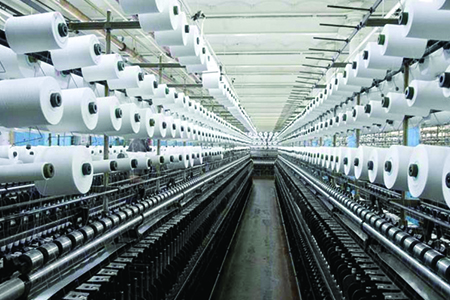
Indian textile industry welcomes Union Budget 2021-22
YarnsandFibers News Bureau 2021-02-06 17:26:16 – IndiaWhile announcing the budget plan on February 1, 2021 union finance minister, Nirmala Sitharaman made few announcements for the textiles sector regarding custom duties. A concern has been shown to rationalize custom duties on raw materials to give micro, small and medium enterprises in the textile export sector a boost.
Customs duties have been made to 5% from 10% on caprolactam, nylon chips, nylon fiber and yarns. This plan gives encouragement for nylon production which may not be very healthy for the environment and climate change in the long term. Nylon has been the world's first entirely synthetic polymer and has been a very sellable one since 1938; mostly preferred for its strength, durability, and elasticity. Nylon is made of super long repetitive units of diamines and dicarboxylic acids which means its production will be impossible without oil and gas additives and will have the same negative environmental impact as fossil fuels.
The Pulse of Fashion Report had announced that nylon has the highest impact on the environment and it is energy-intensive which causes global warming. Nylon production releases even more harmful gases than carbon dioxide that is nitrous oxide. Its untreated discharge through factory wastewater causes harm to a range of aquatic organisms. So it can be clearly seen that nylon has no sustainable future in the textile industry. Even the usage of nylon in the finished product is also very harmful to the environment. With every wash, it releases plastic microfibers into the water which goes into our water bodies and causes marine pollution, as researched by Ellen Macarthur Foundation. Conventional nylon is non-biodegradable and remains on the earth for hundreds of years; even if disposed of properly microscopic fiber pieces break down very slowly and contribute to the accumulation and microplastic pollution. Nylon is widely used in the pharmaceutical and industrial sectors. There has been a small improvement in nylon production by using sustainably sourced materials.
Scientists have had promising results replacing well-established petrochemical polymers with bio polyamides from amino acids for the production of nylon. Simply encouraging nylon production without showing any concern for technological innovations, sustainable collaborations and circular designs should not be the Indian government's way forward and an issue to ignore. We can fight against climate change with proper policies and regulations being made for the sector.
Market Intelligence
Ask for free sample Report

experience
Customer Base
dedicated team
Countries Served Worldwide









